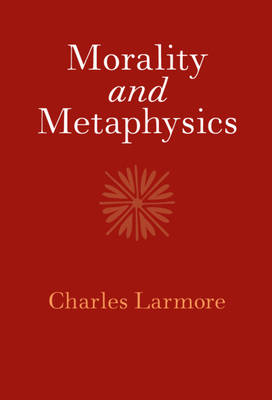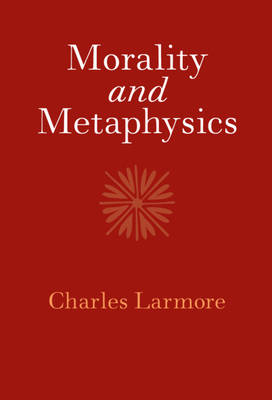
Bedankt voor het vertrouwen het afgelopen jaar! Om jou te bedanken bieden we GRATIS verzending (in België) aan op alles gedurende de hele maand januari.
- Afhalen na 1 uur in een winkel met voorraad
- In januari gratis thuislevering in België
- Ruim aanbod met 7 miljoen producten
Bedankt voor het vertrouwen het afgelopen jaar! Om jou te bedanken bieden we GRATIS verzending (in België) aan op alles gedurende de hele maand januari.
- Afhalen na 1 uur in een winkel met voorraad
- In januari gratis thuislevering in België
- Ruim aanbod met 7 miljoen producten
Zoeken
Omschrijving
In this book, Charles Larmore develops an account of morality, freedom, and reason that rejects the naturalistic metaphysics shaping much of modern thought. Reason, Larmore argues, is responsiveness to reasons, and reasons themselves are essentially normative in character, consisting in the way that physical and psychological facts - facts about the world of nature - count in favor of possibilities of thought and action that we can take up. Moral judgments are true or false in virtue of the moral reasons there are. We need therefore a more comprehensive metaphysics that recognizes a normative dimension to reality as well. Though taking its point of departure in the analysis of moral judgment, this book branches widely into related topics such as freedom and the causal order of the world, textual interpretation, the nature of the self, self-knowledge, and the concept of duties to ourselves.
Specificaties
Betrokkenen
- Auteur(s):
- Uitgeverij:
Inhoud
- Aantal bladzijden:
- 248
- Taal:
- Engels
Eigenschappen
- Productcode (EAN):
- 9781108472340
- Verschijningsdatum:
- 17/06/2021
- Uitvoering:
- Hardcover
- Formaat:
- Genaaid
- Afmetingen:
- 152 mm x 229 mm
- Gewicht:
- 498 g

Alleen bij Standaard Boekhandel
+ 305 punten op je klantenkaart van Standaard Boekhandel
Beoordelingen
We publiceren alleen reviews die voldoen aan de voorwaarden voor reviews. Bekijk onze voorwaarden voor reviews.









